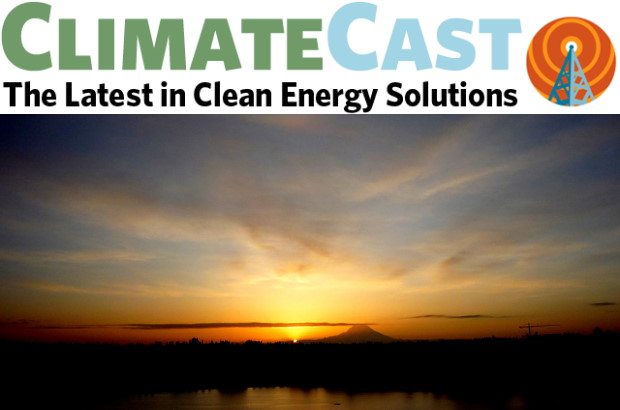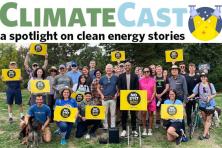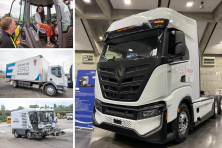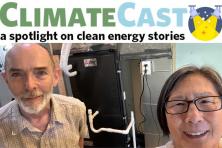Washington officially enters a new phase of climate action
On Monday, Washington Governor Jay Inslee placed his signature on no fewer than five major climate and environmental bills passed by the Legislature this year. The Healthy Environments for All (HEAL) Act aims to safeguard environmental justice and a healthy future for communities impacted by pollution and climate change. A law instituting a Clean Fuel Standard aligns Washington with the rest of the West Coast in promoting the use of low-carbon, renewable transportation fuels and increasing vehicle electrification. Other new laws ban most uses of Styrofoam packaging, and all uses of the superpollutants known as HFCs.
Finally, the Governor’s signature on the Climate Commitment Act creates a firm cap on greenhouse gas emissions, protects air quality among overburdened communities, and provides funding for transit, transportation electrification, climate adaptation and much more, making WA only the second state to enact such a program. Notably, the Governor vetoed sections of the Clean Fuels bill and CCA which linked both measure to future passage of a transportation package, and which mandated tribal consent for investing some funds generated under the CCA’s cap-and-invest system. Advocates expressed concern about this veto, noting the importance of tribal consultation in principle and practice.
Oregon's EV incentives get a boost, while work on 100% clean energy bill continues
The 2021 legislative session continues down in Oregon, as a broad coalition of community and environmental advocates continues to push for the adoption of House Bill 2021, a landmark measure which, if enacted into law, would commit the state to adopting 100% clean electricity by the year 2040. Two other climate-related bills pertaining to transportation and building codes were sent to Governor Kate Brown's desk for her signature; House Bill 2180 would amend state building codes to require new housing developments to furnish electrical hook-ups and service capacity to ease the future installation process for EV charging stations, and House Bill 2165 extends state EV incentive programs, including the acclaimed Charge Ahead program for low-to-moderate income households. As an outspoken advocate for electric vehicles, Gov. Brown is expected to sign both bills into law shortly.
Fossil fuel development cannot be part of a health future, agency warns
Several months ahead of the next COP climate summit in Glasgow, the International Energy Agency has released a new report on the prospects for reducing global greenhouse gas emissions. Their conclusion: in order to reach global net-zero emissions by mid-century, fossil fuel producers must immediately stop investing in new oil, gas and coal projects. This stark conclusion is remarkable in part because the influential IEA has historically been more aligned with fossil fuel interests. The report calls 2021 “a critical year at the start of a critical decade...” when the world must transition to a future “powered predominantly by renewable energy like solar and wind.”
John Kerry’s climate optimism is a little… fuzzy
U.S. climate envoy John Kerry suggested in a recent BBC interview that half of the Biden administration’s proposed emissions reductions would need to come from technologies that have not been invented yet. That drew critical responses from a number of observers who were disappointed in Kerry’s refusal to provide much specificity on how the administration proposes to meet its lofty climate goals. Others mocked or scoffed at the idea that we need to wait for uninvented technology. UK politician Ross Greer objected that “all the technology needed to reduce emissions in line with Paris targets already exists,” adding that “delaying climate action is no better than denying the climate crisis entirely.”
One thing you can do
Did you miss this week's Climate Solution’s online event with Energy Secretary Jennifer Granholm, former Washington Ecology Director Maia Bellon, and Ceres VP Anne Kelly? Never fear: you can view our recording of Inflection Point here.
While watching this insightful and inspiring climate conversation, please consider contributing to Climate Solutions. Thanks for supporting our work fighting for effective, equitable climate policy in Washington and Oregon!





